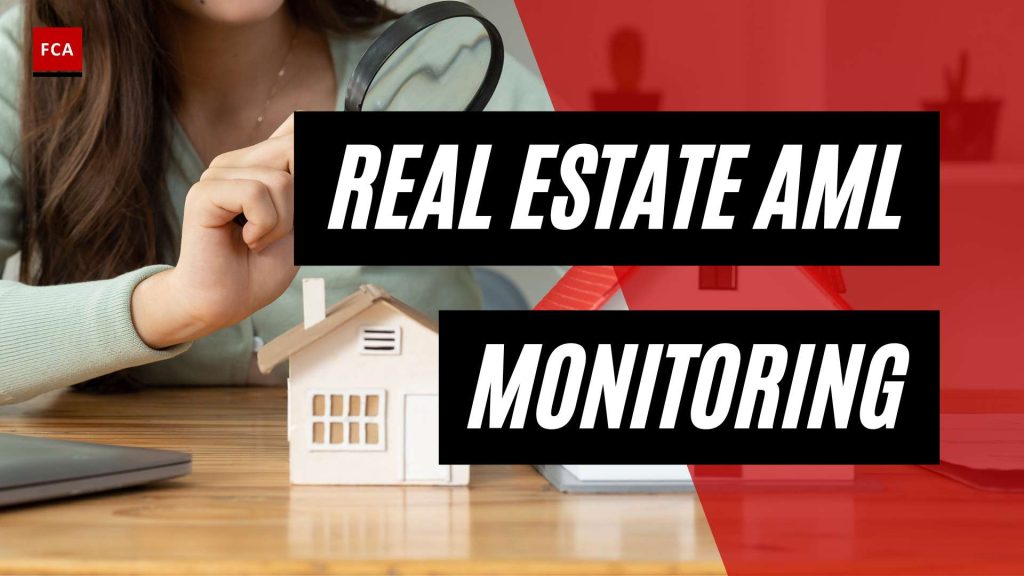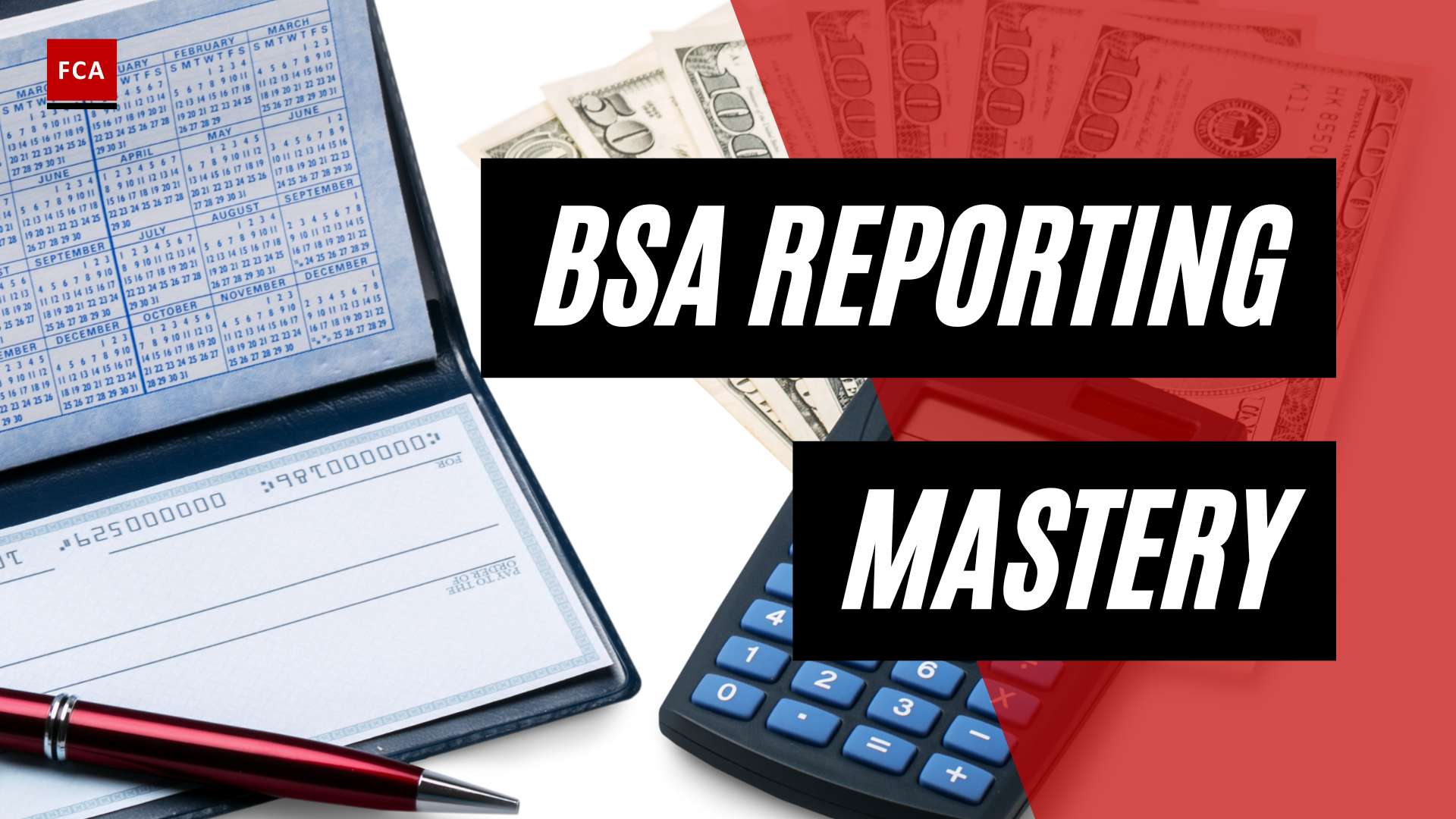The Importance of AML Compliance in Real Estate
Money laundering poses a significant risk in the real estate industry, making Anti-Money Laundering (AML) compliance crucial for professionals in this sector. Criminals often view real estate as an attractive avenue for money laundering due to the potential to obscure ownership and the involvement of large sums of money in transactions (LinkedIn).
Money Laundering in the Real Estate Industry
Money laundering involves concealing the origins, ownership, or destination of illegally obtained funds. In the context of real estate, this can occur through complex financial transactions such as cash deposits, wire transfers, and the purchase of assets like properties. The lack of transparency in real estate transactions and the involvement of various parties, such as real estate agents, attorneys, and title companies, create opportunities for money laundering (Youverify Blog).
Real estate transactions can be used to legitimize illicit funds, making it crucial to have robust AML monitoring in place. By complying with AML regulations, real estate professionals can help prevent money laundering activities and contribute to the integrity of the industry.
Threats and Risks in Real Estate Transactions
The real estate industry is considered high-risk when it comes to money laundering activities. Criminals exploit various vulnerabilities and loopholes in the system to launder their illicit funds. Some key risks and threats in real estate transactions include:
-
Obscuring the source of funds: Money launderers may use real estate transactions to legitimize funds obtained through illegal activities, such as drug trafficking or corruption. By purchasing properties, they can introduce illicit funds into the legitimate economy.
-
Complex ownership structures: Criminals often create complex ownership structures to hide their involvement in real estate transactions. This can involve utilizing shell companies, trusts, or offshore entities to obscure the true beneficial owners of properties.
-
Cash transactions: Cash transactions in real estate can be an attractive option for money launderers, as they can avoid the scrutiny associated with electronic payments. Cash deposits and purchases of properties in large sums can facilitate the laundering of illicit funds.
-
International transactions: Real estate transactions involving cross-border transfers can introduce additional risks. Criminals may exploit differences in regulations, legal systems, and anti-money laundering measures between countries to facilitate money laundering activities.
To mitigate these risks, it is essential for real estate professionals to have robust AML compliance measures in place. By implementing effective AML programs, conducting thorough due diligence on customers, and staying updated with regulatory frameworks, professionals can play a vital role in combating money laundering in the real estate industry.
Key Elements of an Effective AML Program
To fortify the real estate industry against the threats of money laundering and ensure compliance with Anti-Money Laundering (AML) regulations, it is crucial to integrate key elements into an effective AML program. These elements include Know Your Customer (KYC) and Customer Due Diligence (CDD), having a comprehensive AML policy and procedures, and staying updated with regulatory frameworks.
Know Your Customer (KYC) and Customer Due Diligence (CDD)
Developing robust KYC and CDD practices is essential for real estate businesses to prevent financial crimes and mitigate risks. KYC involves verifying the identity and background of customers to ensure they are not involved in illicit activities (LinkedIn). By implementing KYC procedures, real estate professionals can obtain a deeper understanding of their customers and assess potential risks associated with them.
Customer Due Diligence (CDD) is a process that complements KYC. It involves gathering and assessing relevant information about customers to identify any potential risks, such as money laundering or terrorist financing. CDD helps businesses determine the level of due diligence required for each customer based on their risk profile, ensuring appropriate measures are taken to mitigate risks (LinkedIn).
AML Policy and Procedures
Having a strong AML policy and procedures in place is vital for real estate businesses to prevent financial crimes and safeguard against unnecessary risks. A well-crafted AML policy outlines the organization’s commitment to compliance and provides guidance on how to identify and mitigate money laundering risks (LinkedIn). The procedures should detail the steps to be followed to ensure compliance with AML regulations, including customer identification, transaction monitoring, and reporting suspicious activities.
By establishing clear policies and procedures, real estate professionals can create a framework that promotes transparency, accountability, and consistency in AML compliance efforts. This helps protect the integrity of the business and the industry as a whole.
Staying Updated with Regulatory Frameworks
Staying abreast of the evolving AML regulatory frameworks is essential for real estate businesses to maintain compliance. Regulatory requirements can change over time, and it is crucial to adapt to these changes to ensure effective AML practices. The expertise of a professional AML consultant and advisor can help real estate professionals stay ahead of the regulations and maintain compliance (LinkedIn).
By staying updated with regulatory frameworks, real estate professionals can adjust their AML programs accordingly, implement necessary changes, and address any new risks or challenges that may arise. This proactive approach helps build trust with stakeholders and demonstrates a commitment to combating money laundering in the real estate industry.
Ensuring the integration of these key elements into an effective AML program is crucial for fortifying real estate businesses against the threats of money laundering and maintaining compliance with AML regulations. By prioritizing KYC and CDD practices, establishing comprehensive AML policies and procedures, and staying updated with regulatory frameworks, real estate professionals can contribute to the integrity and security of the industry.
Challenges Faced by AML Officers in Real Estate
Ensuring Anti-Money Laundering (AML) compliance in the real estate industry is essential due to the attractive avenue it provides for criminals to launder money and obscure ownership. AML officers face several challenges in their efforts to combat money laundering and protect the integrity of real estate transactions.
Evolving Tactics of Money Laundering
Criminals are continuously evolving their tactics to evade detection, making it challenging for AML officers to track illicit activities. They leverage new technologies, such as cryptocurrencies and digital payment methods, to facilitate money laundering schemes. Additionally, complex transactions involving shell companies and offshore accounts are commonly used to obscure the origin of funds. Trade-based money laundering, which involves manipulating trade transactions to launder money, is another prevalent tactic employed by criminals.
To combat these evolving tactics, AML officers must stay vigilant and adapt their monitoring and detection strategies. Implementing advanced technologies and data analytics can help identify suspicious patterns and transactions that may indicate money laundering activity.
Staying Up-to-Date with Regulations
Keeping up with the constantly evolving regulatory landscape is critical for AML officers in the real estate industry. Local and international regulations governing AML compliance can change frequently, requiring AML officers to stay informed and adjust their compliance programs accordingly. Additionally, industry best practices and new developments in the fight against money laundering should be closely monitored.
By staying up-to-date with regulations, AML officers can ensure that their compliance programs remain effective and aligned with the latest requirements. Engaging with professional AML consultants and advisors can provide valuable guidance in navigating the complex regulatory environment and implementing robust Know Your Customer (KYC) and Customer Due Diligence (CDD) practices (LinkedIn).
Consequences of Non-Compliance
Non-compliance with AML regulations can have severe consequences for both organizations and their officers. Fines, sanctions, and even criminal charges may be imposed, resulting in significant financial penalties and reputational damage. Non-compliant organizations also face increased regulatory scrutiny, which can disrupt their operations and hinder growth.
Moreover, non-compliance negatively impacts an organization’s culture and values. Establishing a culture of compliance and instilling AML awareness throughout the organization is crucial to mitigate the risks associated with non-compliance. AML officers play a pivotal role in ensuring that effective AML programs are in place, conducting regular risk assessments, and providing ongoing training to employees.
By addressing these challenges head-on, AML officers in the real estate industry can strengthen their AML compliance efforts, prevent financial crimes, and contribute to the integrity and transparency of real estate transactions.
AML Monitoring Solutions for Real Estate
To effectively combat money laundering and ensure compliance in the real estate industry, implementing robust AML monitoring solutions is crucial. These solutions help identify potential risks, detect suspicious activities, and facilitate due diligence in real estate transactions. Here are three key AML monitoring solutions for the real estate sector:
ID Verification and Document Checks
Verifying the identities of individuals involved in real estate transactions is essential to comply with AML regulations. A reliable AML monitoring solution should enable thorough ID verification and document checks. This includes validating identification documents such as passports, driver’s licenses, and business registration certificates across 200+ countries and regions (Persona). By leveraging advanced technology and data sources, such solutions ensure that the identities of buyers, sellers, agents, and other parties are accurately verified, minimizing the risk of fraudulent activities.
Automated Negative News and Sanctions Screening
Automated negative news and sanctions screening is another critical component of AML monitoring in real estate. A comprehensive AML solution should be capable of scanning over 400 million articles to identify any negative news or potential red flags associated with individuals involved in real estate transactions (Persona). This includes checking against global sanction lists, warning lists, and politically exposed persons (PEP) lists. By leveraging artificial intelligence and machine learning algorithms, automated screening helps detect any connections to illicit activities, enhancing the effectiveness of AML monitoring.
Case Management and Manual Review Investigations
Efficient case management and manual review investigations are essential in real estate AML monitoring. A reliable AML monitoring solution should provide a configurable case management hub that streamlines the process of resolving AML-related cases in the real estate sector. This hub allows AML officers to seamlessly conduct manual review investigations, analyze suspicious transactions, and take appropriate actions when necessary. By centralizing case-related information and providing configurable workflows, this solution enhances the efficiency and effectiveness of AML monitoring efforts.
By leveraging these AML monitoring solutions, real estate professionals can strengthen their compliance measures and mitigate the risks associated with money laundering in the industry. It is important to choose AML software solutions carefully, ensuring they align with regulatory requirements and provide the necessary features for effective AML monitoring. Notable AML software solutions in the market include MemberCheck/NameScan, ComplyAdvantage, LexisNexis, Refinitiv World-Check, Dow Jones Risk & Compliance, Sanction Scanner, SEON, SumSub, and Ondato (Vespia). These solutions offer a range of features, integrations, and pricing options to cater to the diverse needs of businesses in terms of AML compliance.
To learn more about AML compliance in the real estate industry, including requirements for estate agents and potential consequences of non-compliance, refer to our articles on real estate AML compliance and AML legislation and regulations for real estate.
Technology and Automation for AML Compliance in Real Estate
As the real estate industry continues to face increasing risks related to money laundering in real estate, it becomes crucial to leverage technology and automation to strengthen real estate AML compliance efforts. These advancements can streamline compliance processes, enhance monitoring efficiency, and mitigate potential risks associated with financial crimes.
Streamlining Compliance Processes
Automation plays a significant role in streamlining AML compliance processes within the real estate sector. By utilizing advanced real estate AML software solutions, professionals can automate various essential tasks, such as ID verification and document checks, negative news and sanctions screening, and case management.
Automated ID verification and document checks allow for efficient and accurate verification of individuals involved in real estate transactions. These solutions enable professionals to verify IDs across multiple countries and regions, ensuring compliance with regulatory requirements. By automating this process, time and effort are saved, allowing for a smoother and more efficient onboarding process.
Negative news and sanctions screening is another critical aspect of real estate AML compliance. Real estate AML software solutions enable professionals to automate checks across vast databases, including global sanction, warning, and politically exposed person (PEP) lists. This automated screening process helps identify any potential red flags related to individuals involved in real estate transactions, enhancing the effectiveness of AML monitoring processes.
Additionally, a configurable case management hub provided by AML software solutions allows professionals to conduct manual review investigations efficiently. This centralized system enables the resolution of AML-related cases in the real estate sector, ensuring compliance with regulatory requirements and mitigating potential risks.
Enhancing Monitoring Efficiency
Technology and automation significantly enhance monitoring efficiency in real estate AML compliance. AML software solutions enable professionals to continuously monitor customer transactions and activities, serving as an efficient AML check and risk assessment tool. By leveraging intelligent automated tools, suspicious transactions and activities can be identified and flagged promptly.
Real-time monitoring and alerts provided by AML software solutions allow professionals to proactively detect and respond to potential money laundering activities. By automating this process, the risk of missing critical information or overlooking suspicious patterns is minimized, leading to more effective AML compliance efforts.
Real Estate AML Software Solutions
Real estate AML software solutions have become indispensable for professionals in the industry. These software solutions act as all-in-one platforms, incorporating various AML checks, customer due diligence, screening and monitoring, and risk assessment functionalities. They help businesses ensure compliance with AML regulations, mitigate the risk of financial crimes, and align with their risk appetite.
Notable real estate AML software solutions include MemberCheck/NameScan, ComplyAdvantage, LexisNexis, Refinitiv World-Check, Dow Jones Risk & Compliance, Sanction Scanner, SEON, SumSub, Ondato, and Vespia. Each solution offers unique features, integrations, pricing options, and trial availability, catering to the diverse needs of businesses in terms of AML compliance.
By embracing technology and automation through real estate AML software solutions, professionals can enhance their compliance processes, monitor transactions more efficiently, and ensure adherence to regulatory frameworks. These advancements enable the industry to better guard against money laundering and protect the integrity of real estate transactions.
AML Obligations for Real Estate Professionals
Real estate professionals play a crucial role in preventing money laundering within the industry. They have specific obligations under the Proceeds of Crime (Money Laundering) and Terrorist Financing Act (PCMLTFA) to ensure compliance with anti-money laundering (AML) regulations. Let’s explore some of the key obligations for real estate professionals in relation to AML.
Know Your Customer (KYC) in Real Estate Transactions
Real estate professionals have an obligation to know the individuals they are working with in a real estate transaction. This includes obtaining information about clients, conducting due diligence, and verifying their identity. Early discussions with clients about their AML obligations can serve as a deterrent to money laundering.
Performing thorough AML due diligence is essential to identify any potential red flags or suspicious activities. Real estate professionals should perform searches on relevant databases, such as the LOTR (Land Owner Transparency Registry), LTSA (Land Title and Survey Authority), or Corporate Registry. These searches help verify the information provided by clients and identify any discrepancies or red flags that may indicate potential money laundering.
AML Compliance for Managing Brokers
Managing brokers have a critical responsibility to establish a comprehensive and effective AML compliance program within their brokerages. This includes developing policies and procedures, providing guidance to real estate professionals, monitoring client relationships for ongoing compliance, and ensuring accurate reporting to FINTRAC (Financial Transactions and Reports Analysis Centre of Canada).
Managing brokers should familiarize themselves with the applicable sections of the Real Estate Services Act and regulations. By doing so, they can ensure that their brokerage remains compliant with AML requirements and can promptly address any potential issues that arise. A robust AML compliance program led by managing brokers is crucial in safeguarding the real estate industry from money laundering risks (BCFSA Anti-Money Laundering Guidelines).
Utilizing Tools for AML Checks
Real estate professionals should leverage various tools and resources available to them to conduct effective AML checks. These tools aid in verifying the identity of clients, assessing the source of funds, and detecting any suspicious activities.
By utilizing AML software solutions, real estate professionals can streamline their AML compliance processes, enhance monitoring efficiency, and ensure comprehensive checks are performed. These solutions often include features such as ID verification and document checks, automated negative news and sanctions screening, and case management for manual review investigations.
In addition to software solutions, real estate professionals should stay informed about the latest AML regulations and best practices in the industry. By attending relevant training programs and staying up-to-date with regulatory changes, they can adapt their compliance efforts accordingly and mitigate the risks associated with money laundering in real estate transactions.
Complying with AML obligations is essential for real estate professionals to maintain the integrity of the industry and protect against illicit financial activities. By fulfilling their KYC obligations, ensuring AML compliance within their brokerages, and utilizing the appropriate tools, real estate professionals contribute to a robust AML framework and help safeguard the real estate sector from money laundering risks.
AML Compliance for Estate Agents
Estate agents play a crucial role in the real estate industry and are subject to specific AML (Anti-Money Laundering) obligations. To ensure the integrity of property transactions and mitigate the risk of money laundering, estate agents must adhere to certain compliance measures. This section will explore AML checks on customers, AML monitoring processes, and the benefits of automation in AML compliance for estate agents.
AML Checks on Customers
Estate agents are required to conduct AML checks on customers for each transaction exceeding €10,000. These checks involve evaluating the source of funds and verifying the identities of the individuals involved in the transaction. By performing due diligence on customers, estate agents can identify potential risks and red flags associated with money laundering activities (NorthRow).
AML checks on customers typically involve:
- Collecting customer information, including identification documents such as passports or driver’s licenses.
- Verifying the provided information using reliable sources and conducting appropriate risk assessments.
- Monitoring and assessing the ongoing relationship with the customer to detect any suspicious activity or changes in behavior.
These checks are essential in preventing illicit funds from entering the real estate market and ensuring compliance with AML regulations.
AML Monitoring Processes
To effectively monitor transactions and detect potential money laundering activities, estate agents must establish robust AML monitoring processes. These processes involve continuous oversight of transactions and the identification of any suspicious patterns or anomalies. A proactive approach to monitoring enables estate agents to promptly report any suspicious activities to the relevant authorities (NorthRow).
Key components of AML monitoring processes for estate agents include:
- Conducting risk assessments on customers and transactions to identify potential AML risks.
- Implementing transaction monitoring systems to detect unusual or suspicious activities.
- Establishing clear procedures for reporting and escalating suspicious transactions or red flags.
- Regularly reviewing and updating AML policies and procedures to align with regulatory requirements.
By maintaining effective AML monitoring processes, estate agents can play a vital role in safeguarding the real estate industry against money laundering threats.
Benefits of Automation in AML Compliance
Automation can greatly enhance AML compliance for estate agents. By leveraging technology and automated solutions, estate agents can streamline their compliance processes, reduce the risk of human error, and save time and resources. Automated systems can assist in conducting customer due diligence, screening for sanctions and negative news, and monitoring transactions for suspicious activities.
The benefits of automation in AML compliance for estate agents include:
- Increased efficiency and accuracy in conducting AML checks and monitoring activities.
- Enhanced ability to identify and investigate potential red flags and suspicious transactions.
- Improved record-keeping and audit trails for compliance purposes.
- Streamlined reporting to regulatory authorities, ensuring timely and accurate disclosures.
By embracing automation, estate agents can strengthen their AML compliance efforts, reduce compliance risks, and contribute to a more secure real estate industry.
As estate agents navigate their AML obligations, they must remain vigilant in conducting AML checks on customers, implementing effective AML monitoring processes, and leveraging automation to streamline compliance efforts. Failure to comply with AML obligations can result in significant fines, imprisonment, or loss of professional licenses. By prioritizing AML compliance, estate agents contribute to a more transparent and secure real estate market while protecting themselves and their customers from the risks associated with money laundering activities.
AML Legislation and Regulations for Real Estate
The real estate industry poses a significant risk for money laundering activities due to its potential to obscure ownership and the involvement of large sums of money in transactions. Consequently, robust Anti-Money Laundering (AML) compliance measures are crucial in this sector. Let’s explore the legislation, requirements, and consequences associated with AML in real estate.
The Risk of Money Laundering in Property Sales
Money laundering involves concealing the origins, ownership, or destination of illegally obtained funds through complex financial transactions, including real estate transactions. Criminals find real estate an attractive avenue for money laundering due to the potential to obscure ownership and the involvement of substantial amounts of money in transactions (Sanction Scanner). The lack of transparency in real estate transactions and the involvement of various parties, such as real estate agents, attorneys, and title companies, create opportunities for money laundering (Youverify Blog).
To combat these risks, governments and regulatory bodies have implemented legislation and regulations specific to AML in real estate.
AML Requirements for Estate Agents
Estate agents play a crucial role in real estate transactions and are subject to specific AML requirements. These requirements vary by jurisdiction but generally involve conducting proper customer due diligence, verifying the identity of clients, and reporting suspicious transactions. Estate agents must be aware of their obligations under the applicable AML legislation in their jurisdiction and implement appropriate measures to prevent and detect money laundering in their transactions.
Consequences of Non-Compliance
Non-compliance with AML regulations in the real estate sector can have severe consequences for both individuals and businesses. Regulatory authorities have the power to impose fines, penalties, and even criminal charges for failure to comply with AML requirements. Additionally, non-compliance can damage a company’s reputation, resulting in loss of business and trust from clients and partners.
It is crucial for real estate professionals to understand and fulfill their obligations under the AML regulations specific to their jurisdiction. By implementing robust AML compliance programs, conducting necessary due diligence, and reporting suspicious activities, real estate professionals can contribute to maintaining public confidence in the industry and help combat money laundering in property sales.
To learn more about AML compliance specific to other roles within the real estate industry, such as property developers and mortgage lenders, refer to our articles on aml compliance for property developers and aml compliance for mortgage lenders.
By adhering to AML legislation and regulations, real estate professionals can play a vital role in safeguarding the industry’s integrity and protecting against money laundering risks.








